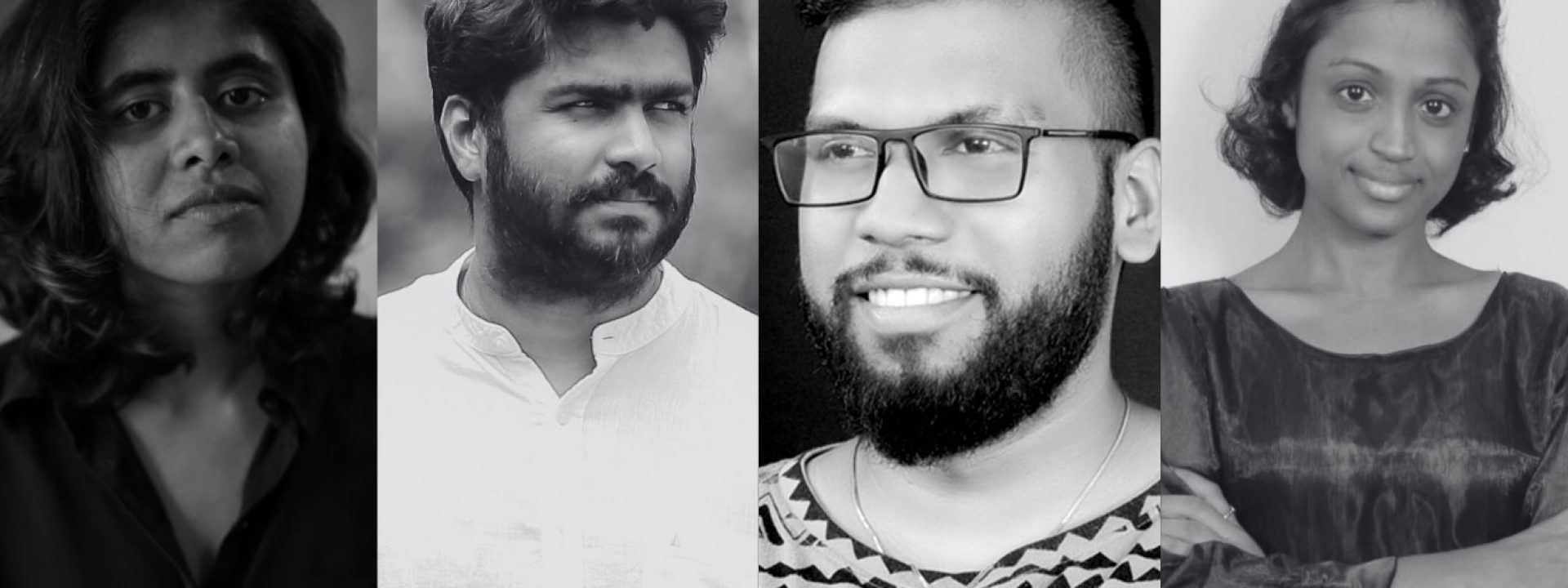The A4A Production Fund, Sri Lanka’s first publicly funded arts grant supporting innovation at the intersection of art and craft, is proud to announce the recipients of its third edition.
2025/2026 Grantees:
-
Darshi Rathnayake
-
Rajitha Rupasinghe
-
Catharina Danial
-
Kavishwara Jayasekara
These artists have been selected for their bold and innovative approaches to contemporary practice, reflecting the Fund’s commitment to nurturing emerging talent and expanding the possibilities of art and craft in Sri Lanka.
Darshi Ratnayake is a photographer and image researcher whose practice engages film, photography, and archives. She holds a BA (Special) in Image Arts from the University of Kelaniya and is the founder of Memories of the Ordinary (MO), an archive of found photographs from Sri Lanka that preserves everyday stories and overlooked narratives.
Working at the intersection of art, research, and memory, she layers found images with fictional fragments, poetic texts, and reconstructed timelines to propose alternative ways of seeing. Her work often returns to themes of absence, domesticity, anonymity, and decay, foregrounding the power of a single decontextualized image to evoke time, place, and emotion. Moving fluidly between the roles of photographer, archivist, storyteller, and filmmaker, she reimagines how memory can be activated, disrupted, or reconstructed through visual form, creating reflective spaces where the forgotten and the ordinary resurface.
Rajitha Rupasinghege is an artist and architect whose practice interrogates power, access, and representation within contemporary society. He holds a Bachelor of Architecture (Hons) from the University of Moratuwa and is currently pursuing a Master of Arts in Archaeology and Art History at the Postgraduate Institute of Archaeology, University of Kelaniya.
Working across installations, paintings, and spatial interventions, Rajitha challenges structures that determine whose stories are told, how they are framed, and who has the authority to define art. His work seeks to disrupt passive modes of engagement by bringing art outside elite spaces, inviting critical reflection on exclusion, marginalization, and the absurdities of everyday life. Rooted in dialogue with the subaltern, his practice critiques hegemonic forces while opening conceptual and physical spaces for overlooked voices and narratives to surface.
Catharina Danial (b. 1991, Jaffna) is a contemporary artist whose work explores memory, heritage, and the natural environment of northern Sri Lanka. Educated in the arts at the University of Jaffna, she first exhibited in 2018 at Saskia Fernando Gallery in a show curated by T. Shanathanan, and has since participated in platforms including Colomboscope (2019). Her practice spans painting, drawing, sculpture, installation, and mixed media, weaving together childhood memories, Jaffna’s architectural and cultural heritage, and reflections on the ocean’s biodiversity.
Through this interplay of personal and collective histories, Catharina’s work probes questions of identity, memory, and Sri Lanka’s sociopolitical landscape. Her recent series Nostalgic (2023) reflects on the entanglement of past, present, and future, while her ongoing research focuses on abandoned heritage sites in the north, reimagining their histories through new artistic forms.
Kavishwara Jayasekara (b. 1996, Colombo) is a contemporary artist whose work is deeply rooted in the traditional painting style of the Southern Region of Sri Lanka. Influenced by the country’s complex colonial history and the artistic legacy of resistance through temple mural painting, Kavishwara channels this heritage into a contemporary practice that blends historical reverence with critical modern commentary. As a pandal and temple painter in his youth, Kavishwara developed an early connection to the visual traditions of Sri Lankan Buddhism. Over time, his practice expanded to include the research and reinterpretation of these styles, with a particular focus on their narrative power and evolving significance in today’s sociopolitical landscape. At the intersection of tradition and modernity, his work invites reflection, conversation, and transformation—highlighting art’s enduring role as a medium for resistance, expression, and cultural continuity.
We congratulate this year’s grantees and look forward to supporting their journeys through the A4A mentorship programme, fostering artistic growth and cross-cultural exchange.

